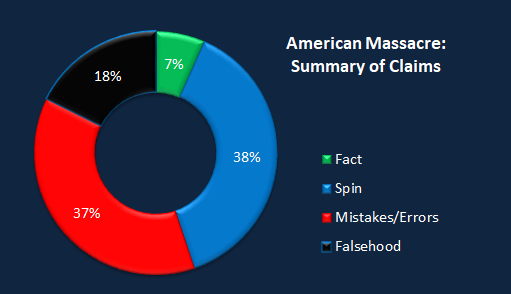
FAIR is a non-profit organization dedicated to providing well-documented answers to criticisms of the doctrine, practice, and history of The Church of Jesus Christ of Latter-day Saints.
A FAIR Analysis of: American Massacre: The Tragedy at Mountain Meadows, a work by author: Sally Denton
|

Wiki links |
|
Navigators |
Jump to details:
This is an index of claims made in this work with links to corresponding responses within FairMormon Answers. An effort has been made to provide the author's original sources where possible.
Jump to details:
Jump to details:
Jump to details:
Jump to details:
Jump to details:
Jump to details:
Jump to details:
Jump to details:
Jump to details:
Jump to details:
Jump to details:
Jump to details:
Jump to details:
Jump to details:
Jump to details:
Sally Denton's American Massacre is the "Native Americans didn't do it" version of the Mountain Meadows Massacre of 1857 near Cedar City, Utah. The massacre has recently attracted much attention with the refurbishing of the memorial at Mountain Meadows and the publication or republication of three other widely acclaimed books: Will Bagley's Blood of the Prophets, which I have reviewed earlier;1 Jon Krakauer's bestseller Under the Banner of Heaven; and William Wise's Massacre at Mountain Meadows.2
Denton's polished writing style is more readable than Bagley's. That is about the best one can say of this work, though, because Denton's pursuit of Native American political correctness fails her when she gets into the tough issue of culpability beyond the direct participants. In an area that demands a thorough knowledge of the relevant literature, Denton is deficient. She also relies heavily on secondary sources, many of which are suspect because of their own failure to adequately document primary sources. Her work, therefore, is largely a reinterpretation of old sources rather than a treatment of new sources and material. Her suggestion that she is an insider to the Latter-day Saint psyche (p. 293) proves unconvincing because she makes mistakes that careful historians of Mormon Americana do not.

FAIR is a non-profit organization dedicated to providing well-documented answers to criticisms of the doctrine, practice, and history of The Church of Jesus Christ of Latter-day Saints.
We are a volunteer organization. We invite you to give back.
Donate Now